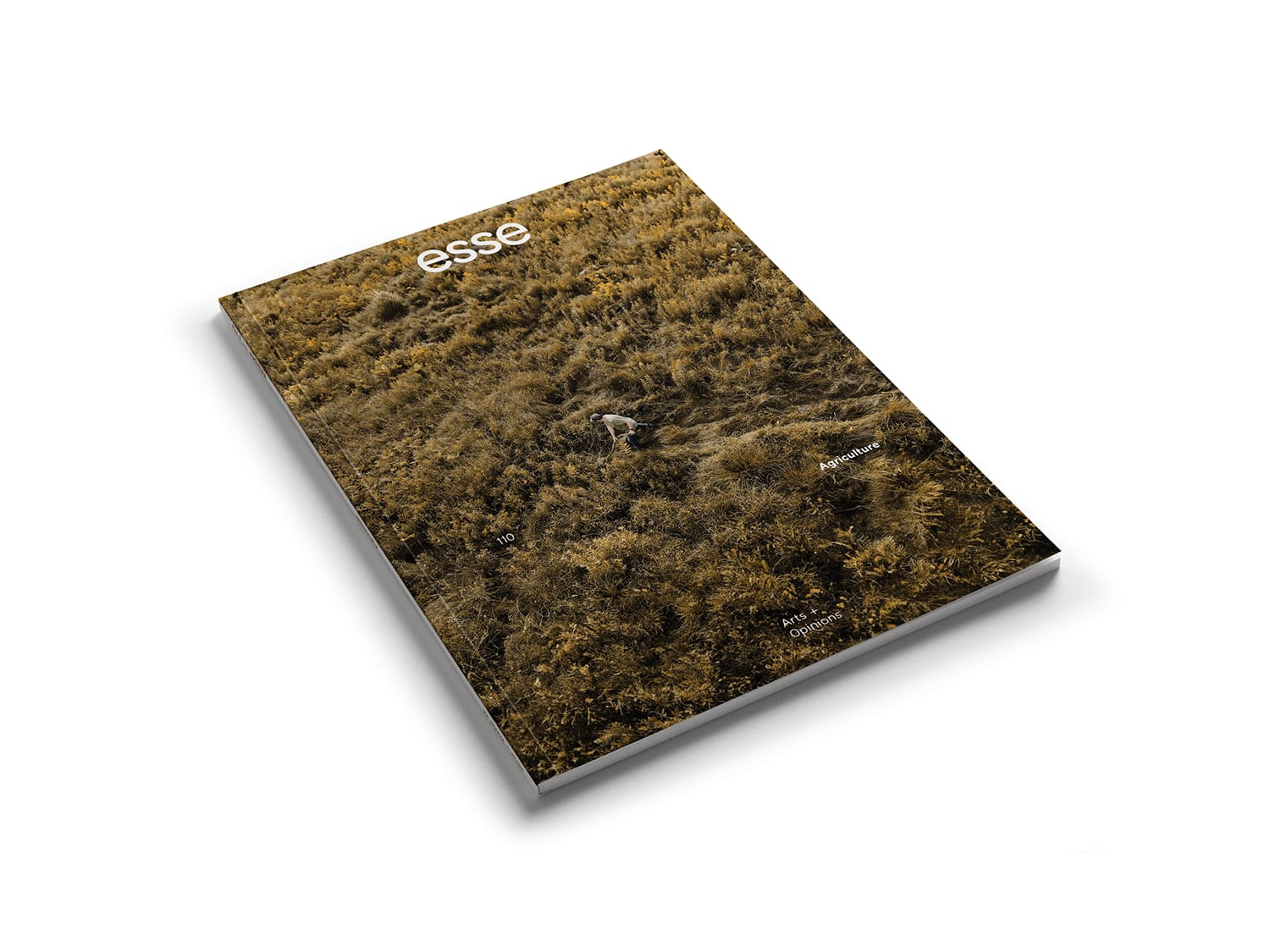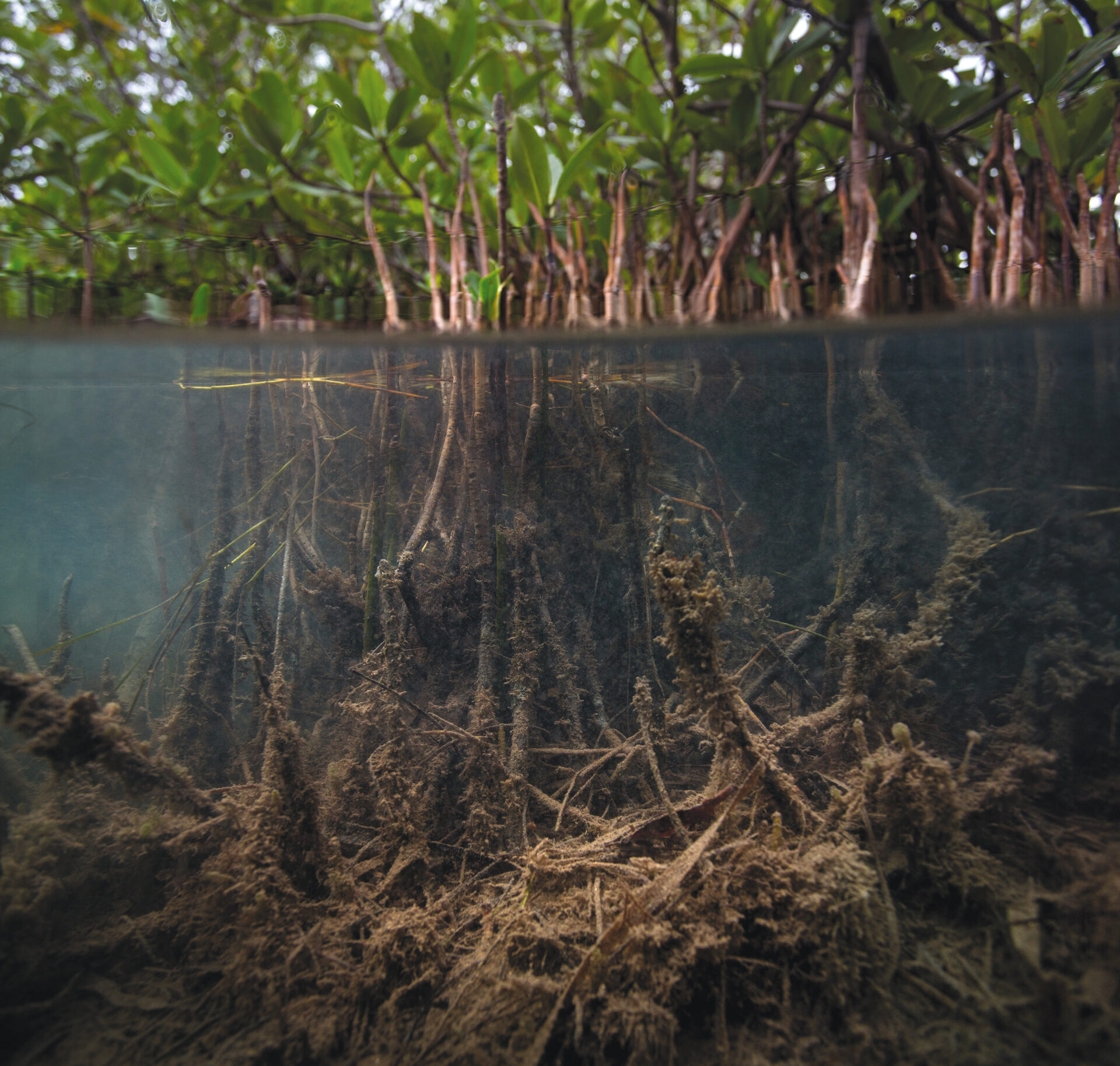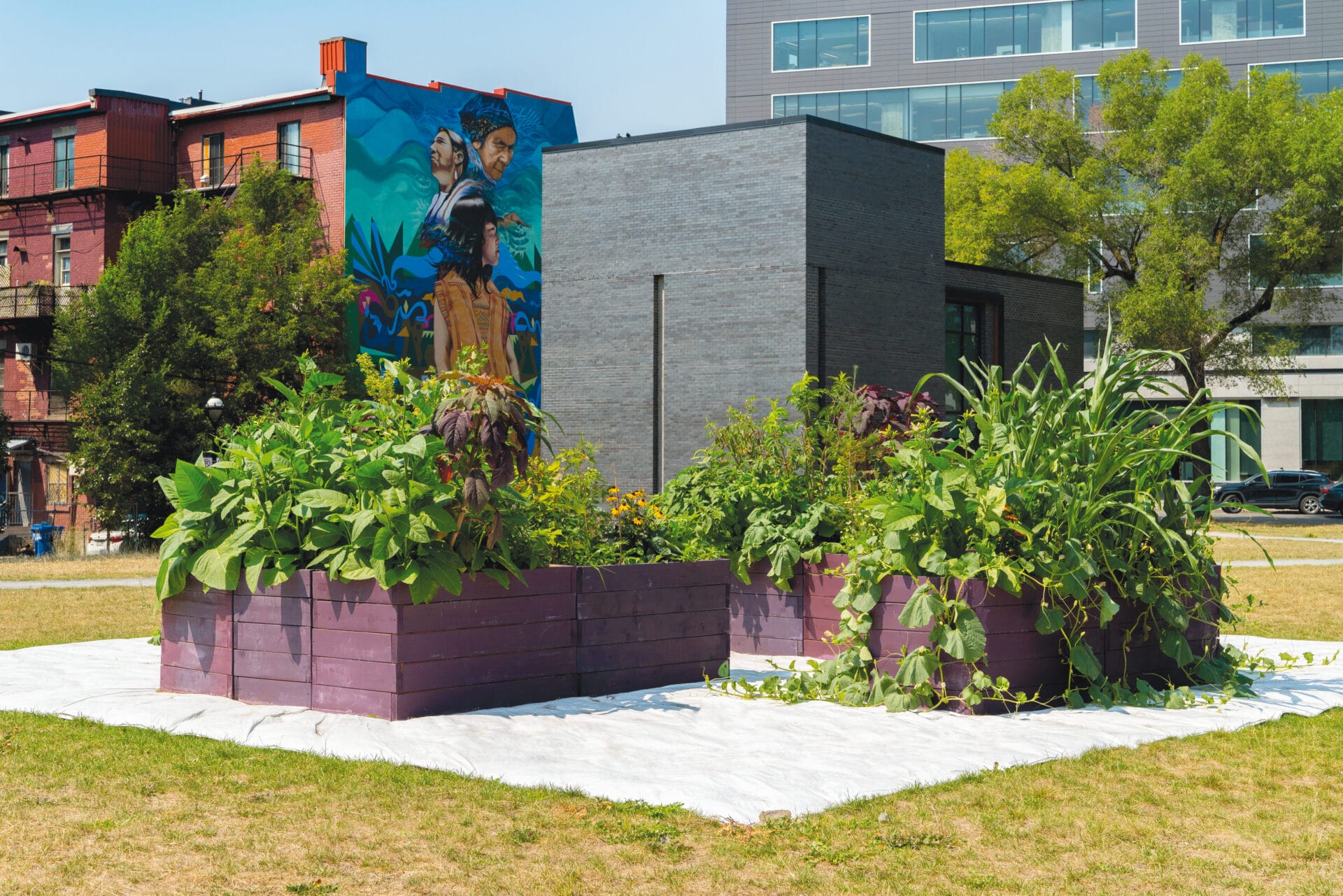
Photo: Jean-Michael Seminaro, courtesy of MOMENTA
Interdisciplinary artist T’uy’t’tanat-Cease Wyss has been weaving connections among art, agriculture, and social engagement for over thirty years. Working collaboratively with various marginalized or racialized communities in the creation of urban food gardens, Wyss is interested in the regenerative power of certain plants and their capacity to remediate barren or contaminated soils. Thanks to this natural plant-based decontamination process, tracts of land previously deemed unsuitable for agriculture often (re)become fertile spaces where herbs and squash grow alongside plants that nourish the bodies and souls of those that savour them — humans, birds, bees. Nestled in the asphalt flourish different nutritional ecosystems, tangible proof of the restorative power of biodiversity.
In Vancouver’s Chinatown, the xaw’s shew’áy’ New Growth « 劤주 » project (2019–ongoing) builds on biodiversity’s specific synergy to offer a resilient, productive approach to small-scale food cultivation. In collaboration with local Chinese, Afro-descendant, and Indigenous communities, Wyss has created a garden using permaculture techniques to grow fruits and vegetables native to the Pacific coast. A Constellation of Remediation (2017 – ongoing) and TEIONHENKWEN Supporters of Life (2021), projects realized in Vancouver and Montréal respectively, reiterate their desire to raise awareness about the management and sharing of land by and for all. In addition to stimulating reflection on the urgency of securing food sovereignty for urban communities by encouraging citizen agriculture, Wyss’s works highlight cultivation and thought systems delegitimized by colonialism and capitalism. Thus, by using companion planting or complementarity techniques, each borrows from traditional agricultural practices to guarantee sustainable harvests, while preserving Indigenous forms and symbols to offer a holistic approach to agriculture.
Pragmatic and poetic, Wyss considers public art, intergenerational heritage, ecosystems, and cultivation as symbiotic notions, reminding us that, together, art and agriculture should be understood as decolonial ecologies.
Translated from the French by Louise Ashcroft
Holding a master’s degree in art history with a concentration in feminist studies, Anne-Marie Dubois uses the critical potential of feminist and queer theories to debunk different discourses’ ontological claim to truth.
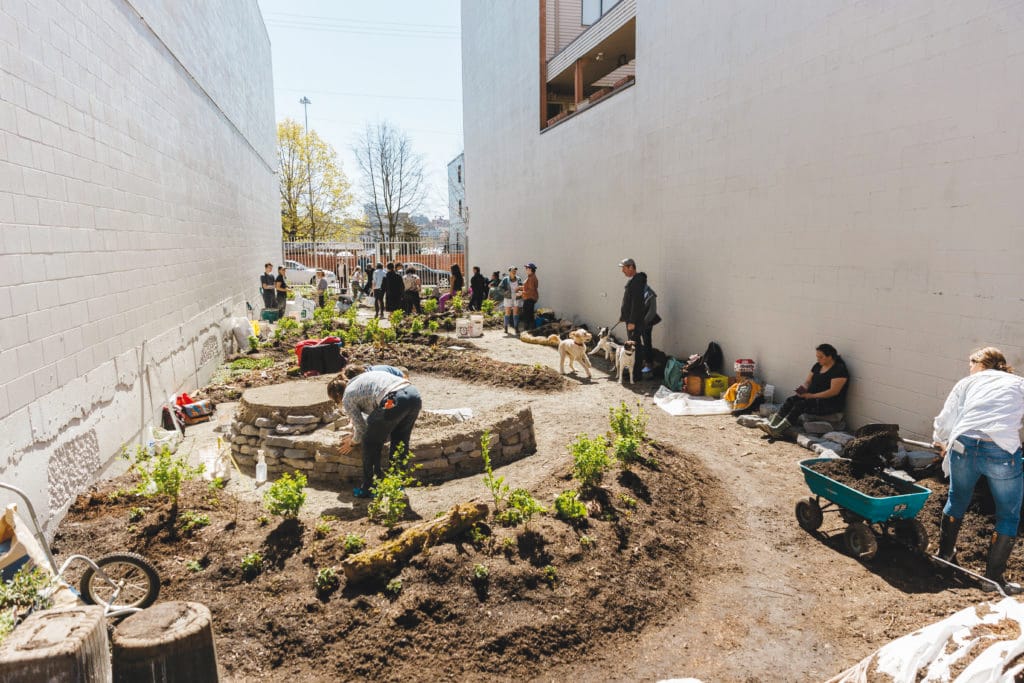
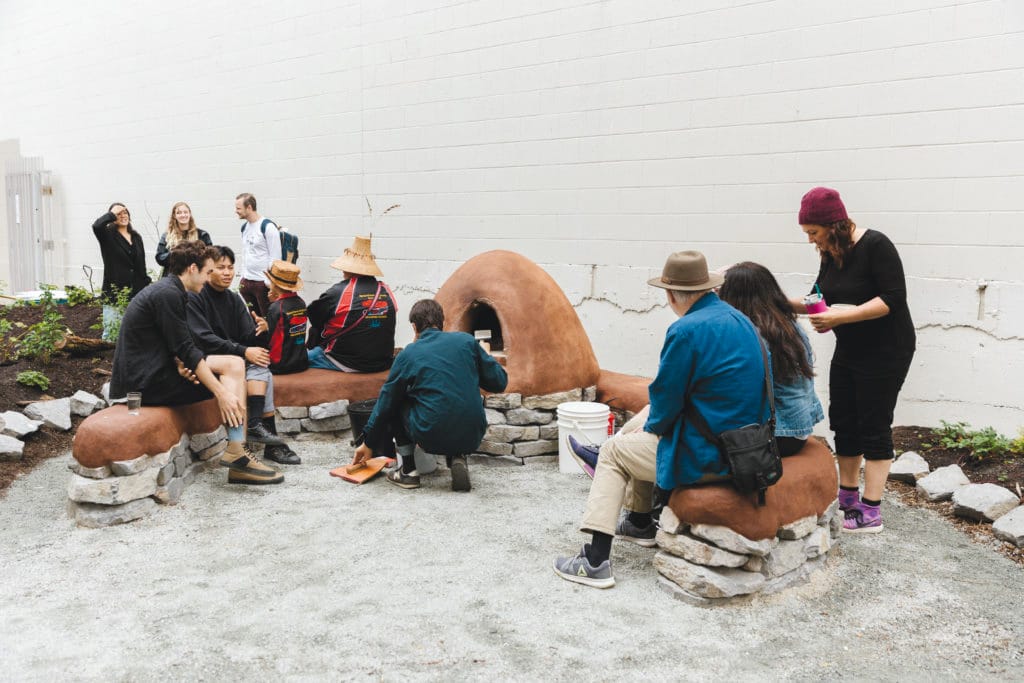
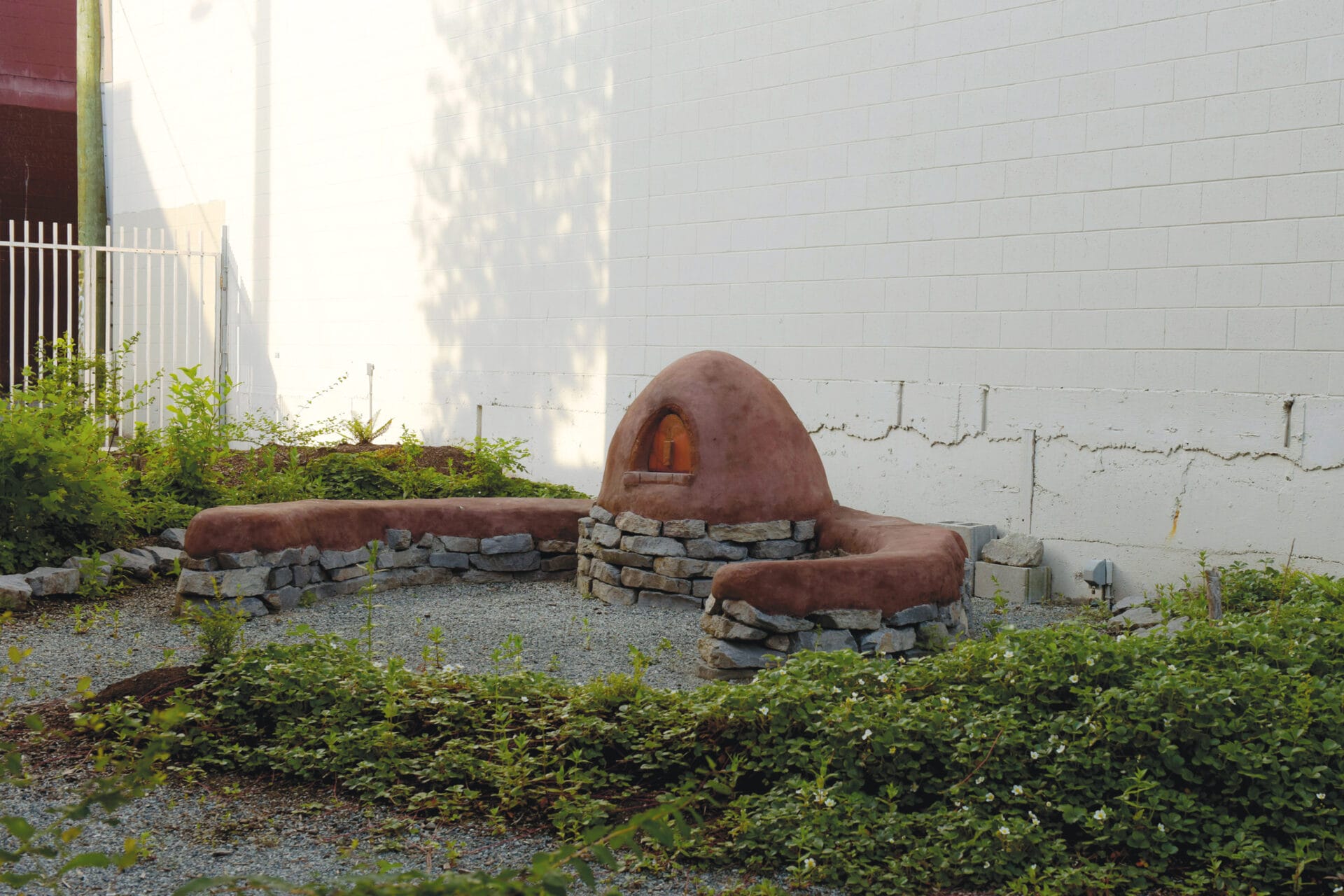
x̱aw̓s shew̓áy̓ New Growth « 新生林 », 2019-ongoing, installation views, Vancouver, 2019.
Photos: Damaris Riedinger, courtesy of the artist & 221A, Vancouver
